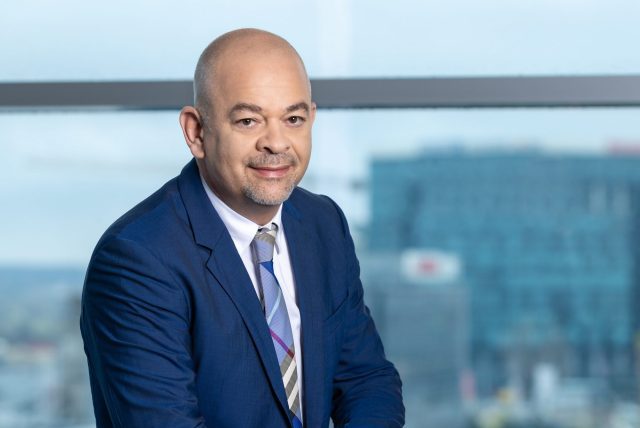I have a law degree and two masters in the same field. Out of almost 23 years of professional
career, 20 have been spent in the sales area, where I have had almost every role possible. As
of March 1, 2020, I took over the position of General Manager of Bergenbier SA, after more than
1 year spent in Bulgaria as General Manager of Kamenitza AD. Both Bergenbier SA and
Kamenitza AD are subsidiaries of Molson Coors Beverage Company in the U.S.
When did you decide to pursue an MBA? Why?
The decision to pursue an Executive MBA program was rather a bet with myself, a personal
ambition “encouraged” and actively supported by my direct boss. I had to thank him and be
grateful later for his perseverance. I knew my objective clearly, but it was as if I’d been “childish”
for another year or two…Over time, with 20 years of sales experience, you come to believe that
you know it all, that nothing and that success is guaranteed. All internal development programs,
or with external facilitators, have created an unbeatable blazon; the only thing missing is the
statue in front of the company, and you’re ready; you’ve done and learned them all. And you get
into that zone comfort zone that does us the greatest possible disservice. Inevitably the plateau
follows. Until you get to the point where you’re just nodding your head…and you realize that
things are changing faster than our power and that business is becoming dependent on
technology and, unfortunately, that’s not something you’ve learned that the new reality we live in
is about constant change, adaptation, speed of reaction, multi-functional capabilities and
perhaps most importantly that the people and teams you’ve built and led need a new leadership
model. This is why I have decided that I need to reset, that I need to start afresh, and that the
best way for me to do it is to pursue an EMBA in General Management.
How did you choose your business school?
I set myself three must-have criteria when I started looking at the market offers in Romania,
without excluding options in European countries that I could reach in a maximum of 2-3 hours
traveling by plane. The first criterion was a business school that already had prestige and a very
good image, to be accredited locally, in Europe, as well as in the US. Very important, as well as
the accreditations, was the way of selecting/accepting candidates. The stricter the acceptance
criteria, the better the quality and level of colleagues you will interact with. The second criterion
was the method of study and curriculum learning. We excluded from the outset programs that
relied on individual study and ticked only options that offer learning by doing in the class
learning program. In addition to deepening my business knowledge, I considered interaction
with colleagues and teachers, teamwork, and sharing experiences in real business situations
very important. The third criterion we have to consider is the cost, the duration of the program,
and, very importantly for me, to be able to study mainly on weekends. Based on these criteria in
my shortlist, there were two programs, one outside Romania and Tiffin University in Bucharest,
the latter being the one that best met my needs.
In your professional life, has the MBA coincided with a change? (What impact has the MBA had?)
In your professional life, has the MBA coincided with a change? (What impact has the MBA had?) It certainly has! Both in terms of career development and the imprint the program itself has left on my personal development. From a career development point of view, I wouldn’t consider the MBA program to be the main reason; it’s probably just one of them. I don’t think an MBA program guarantees you a promotion, but it increases your chances. There’s always a mix of factors: having the opportunity, having the necessary capabilities and experience, and/or fitting the organizational culture, etc.
What did you learn in your MBA that you later applied in business?
At the end of the program, you can’t consider yourself an expert in all the subjects you have
studied, nor would you be able to specialize in all areas of business in two years. But you will
certainly better understand the general context, local or global, topical business cases
considered best practice in other industries can be replicated/adapted to local business needs;
you will improve your structure, discipline, teamwork, communication, and presentation skills,
decision-making. Lastly, you will identify new perspectives in the area of people and leadership.
What were the biggest challenges during the program?
The main “enemy” of an MBA program is the time you have available to study, family, job,
vacations, or free time. It is impossible to manage to finish the program without the support and
understanding of family. In the beginning, I felt it was impossible to reconcile my responsibilities
and time spent at work with weekends spent in class, hours spent with cohort colleagues
preparing team projects, or time spent preparing individual assignments. I got “the hang of it”
and prioritized and planned my time correctly after completing a few modules. This was the first
sign that the MBA program was having an effect, and I was starting to learn a little bit.
Article published in the MBA Guide 2020
